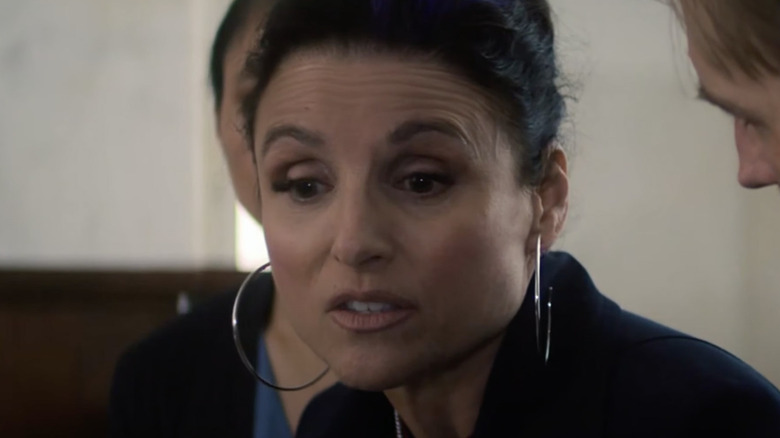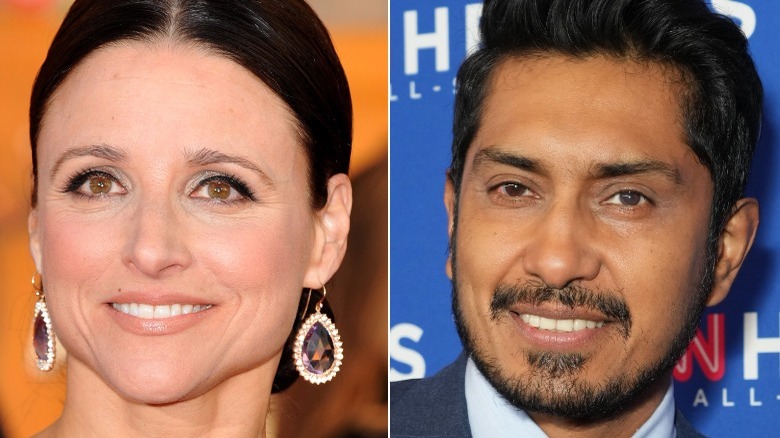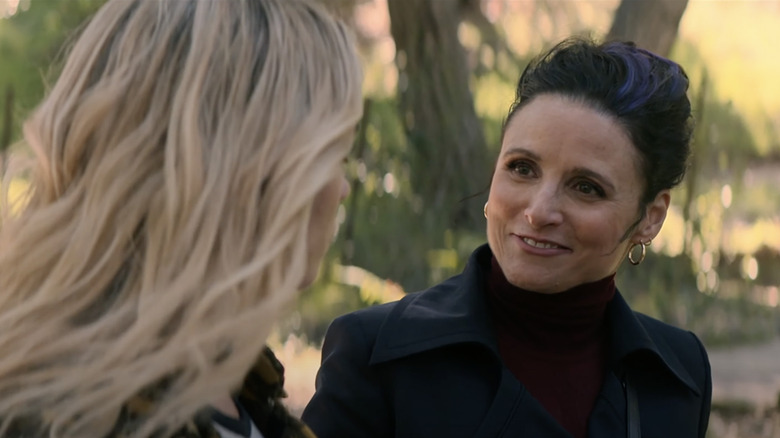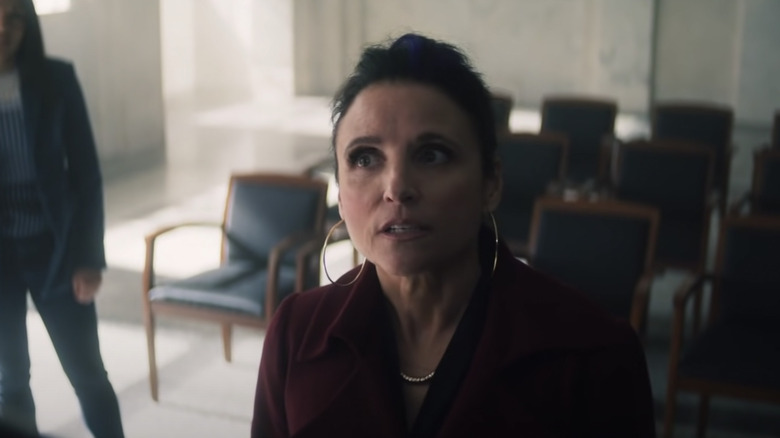Ryan Coogler's Original Plan For Val In Black Panther 2 Would Have Made Way More Sense
"Black Panther: Wakanda Forever" hit cinemas in November 2022, capping off Marvel Studios' Phase 4. The sequel to the 2018 cultural phenomenon, "Wakanda Forever" emerged as a financial success, raking in over $400 million domestically (via The Numbers), making it one of the biggest hits of the year. Beyond finances, the Marvel sequel has been lauded across the board for its emotional resonance and tackling themes of grief and sorrow, which were largely influenced by real life events.
The sequel was retooled following the passing of T'Challa actor Chadwick Boseman, who died from colon cancer. Co-writer and director Ryan Coogler opted to not recast the King of Wakanda, instead choosing to channel the grief he and his fellow Marvel creatives felt into the sequel. The end result was "Wakanda Forever," a sequel that sees T'Challa dying from an illness in the film's opening minutes. With her native land without a protector, T'Challa's sister Shuri (Letitia Wright) steps up and takes on the mantle of the Black Panther, stopping an assault from the underwater kingdom of Talokan spearheaded by their leader Namor (Tenoch Huerta). Stateside, Shuri's country is under the threat of CIA director Valentina Allegra de Fontaine (Julia Louis-Dreyfus), who wants to obtain Wakanda's rich supply of Vibranium.
While the "Black Panther" sequel stands out as a profound and evocative creative effort to confront grief, it's largely different from what Coogler and his co-writer Joe Robert Cole originally envisioned. The two recently opened up about the sequel's original plans, and how it would have featured more of Val, the controversial villain at the center of the film's B plot.
Val would have been the sequel's villain alongside Namor
While speaking with The New York Times, Ryan Coogler and cowriter Joe Robert Cole opened up about the original idea for the "Black Panther" sequel. They revealed that the film was set shortly after the Blip, with T'Challa (Boseman) meeting the son he fathered with Nakia (Lupita Nyong'o) for the first time. The sequel would then jump three years later, with T'Challa and Nakia co-parenting the boy. From what Coogler described, it appears that the sequel would have largely focused on the King of Wakanda trying his best to be a good father. After spending time with the child during a summer ritual, a threat would manifest, forcing the King of Wakanda to return as the Black Panther, with his young son joining him on the mission.
What was the threat that forced T'Challa back into action?
Coogler confirmed to the outlet that Namor (Huerta) was still the film's villain in the original draft. Interestingly, Val (Louis-Dreyfus) was seen taking on a more active role in the sequel's original idea. "It was basically a three-way conflict between Wakanda, the U.S. and Talokan," Coogler said. "But it was all mostly from the child's perspective."
Val was first introduced in "The Falcon and the Winter Soldier," though it wasn't until "Black Widow's" post-credits sequence where her nefarious intentions were made known. In the appearance, she compels a grieving Yelena (Florence Pugh) to murder Hawkeye (Jeremy Renner) in a bid to "avenge" the death of Natasha Romanoff (Scarlett Johansson). Val is set to be a pivotal force as the Marvel Cinematic Universe enters its fifth phase. When asked if the character's inclusion in "Wakanda Forever" was a committee decision, Coogler and Cole revealed that Val had more screen time in the original script.
The original Black Panther sequel script would have had more Val
" ... I've never had a conversation where I was asked to incorporate something that didn't feel organic," Cole said regarding the inclusion of Val (Louis-Dreyfus), who is poised to be a leading player in Marvel Studios' upcoming "Thunderbolts." "The dynamic of the U.S. being an instigator and Western powers being an instigator, that always existed."
Coogler agreed with Cole's sentiments, saying: "Yeah, nobody was shoehorned in or asked to be put into the movie or anything like that." As it turns out, the writers toned down Val's presence in "Wakanda Forever" to allocate more time for grieving T'Challa. "Actually, in this version, [Louis-Dreyfus's role] was pared back in order to make space for dealing with T'Challa's death," Coogler said, before revealing that Louis-Dreyfus' character existed in the film before any other Marvel appearance. "And we had Val in there before she even appeared in any of the other movies, before 'Black Widow' and [the series] 'Falcon and the Winter Soldier.'" Coogler went on to point out that audiences may feel as if Val was instructed to be in the film, though he assured readers that the CIA director was in the project from its very first iteration.
The most common complaint "Wakanda Forever" has received is that the inclusion of Val and, by extension, Everett Ross (Martin Freeman), feels forced. When describing Ross' subplot alongside Val's, /Film said that the film "grinds to a halt so violently that you can practically see metal-on-metal sparks flying off the screen." Fans largely agreed with this assessment, with many saying that Louis-Dreyfus' character should have been removed from the sequel altogether.
However, it seems like the original plan for Val actually would have benefited her inclusion.
More Val could have been a good thing
Ryan Coogler and Joe Robert Cole's answers make it clear that they're passionate about Val's (Louis-Dreyfus) inclusion and how she acts as a face for Western instigation. Unfortunately, the version of the character that fans received in "Wakanda Forever" hasn't been met with either love or hatred, mostly just pure indifference. If the original vision for the sequel had more time dedicated to her, it shouldn't be surprising that Coogler and Cole think of her as a powerful foe, almost on par with Namor (Huerta). If Wakanda is a threat to both the U.S and Talokan, it would be intriguing to imagine both superpowers going head to head with the prosperous, Vibranium-rich country
The issue with Val is that she appeared in the film as an underdeveloped, moustache-twirling character who simply barked orders and uttered quips. Giving her more screen time would have developed her character and her intentions. It also would have serviced the future of the character as it's a fact she's set to be a more nefarious Nick Fury-like (Samuel L. Jackson) character. "Black Panther: Wakanda Forever" producer Nate Moore said as much in a 2021 interview with Marvel: "Whenever we talked about Valentina ... she was sort of a more acerbic, funnier, but darker Nick Fury," Moore said. "Someone who knows her secrets, who's not afraid to operate in the moral gray area, but maybe who isn't as inherently altruistic."
A larger emphasis on Val would have made her a diabolical leading player, especially as Marvel Studios gears up for the release of "Thunderbolts." Unfortunately, "Wakanda Forever" left her as an after-thought. But it's a compromise worth accepting as less Val meant more time for audiences to see their favorite Wakandans grieve over the loss of T'Challa.



